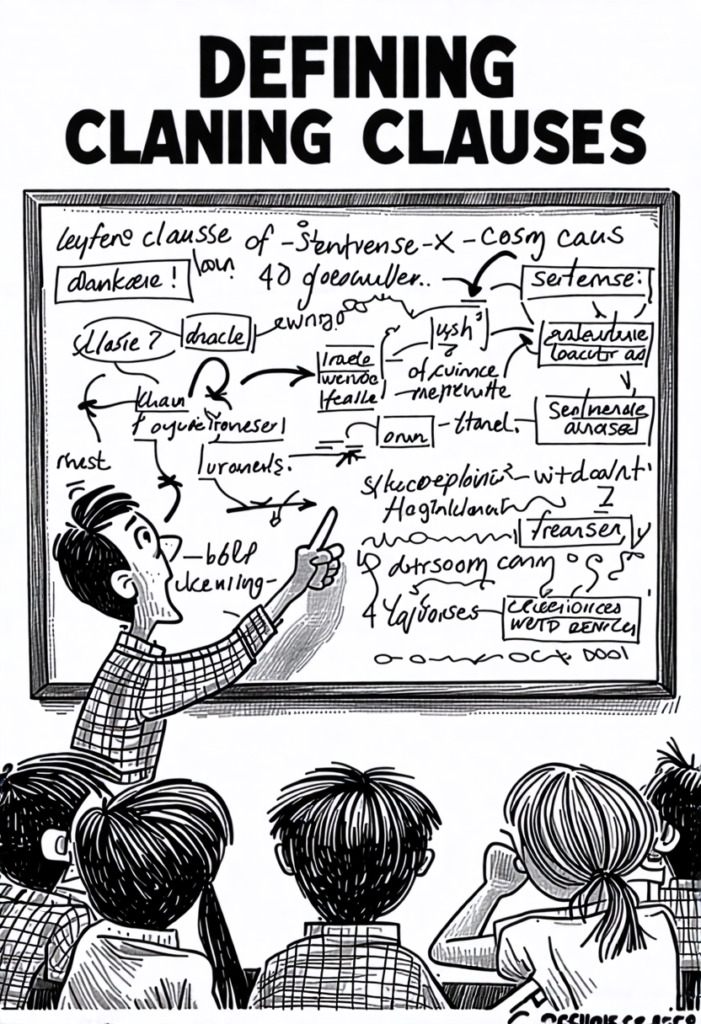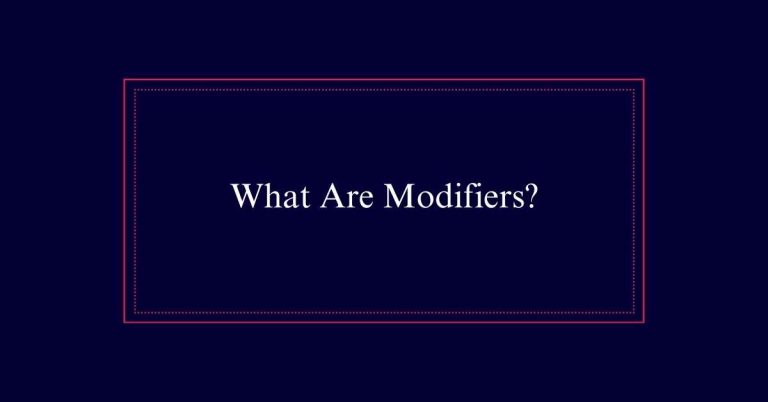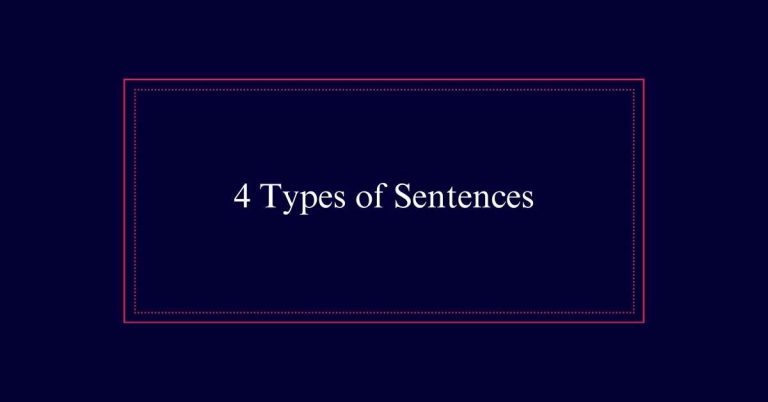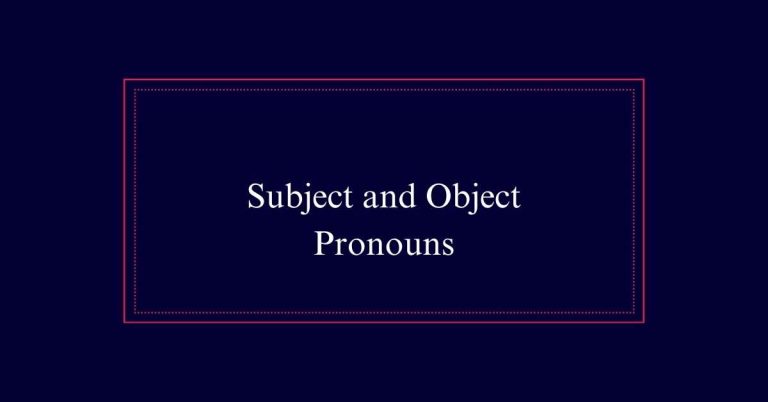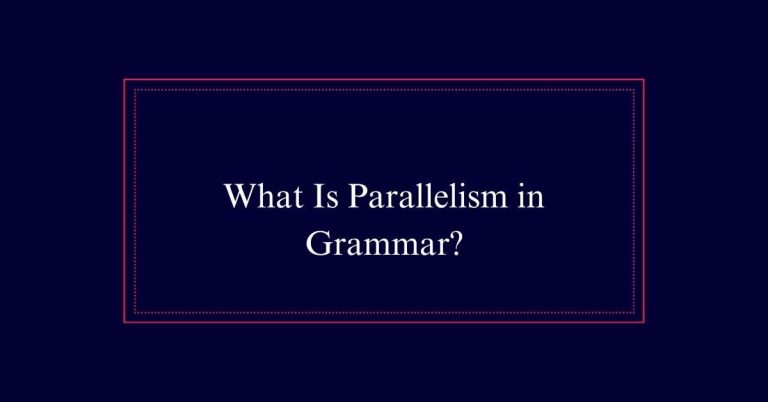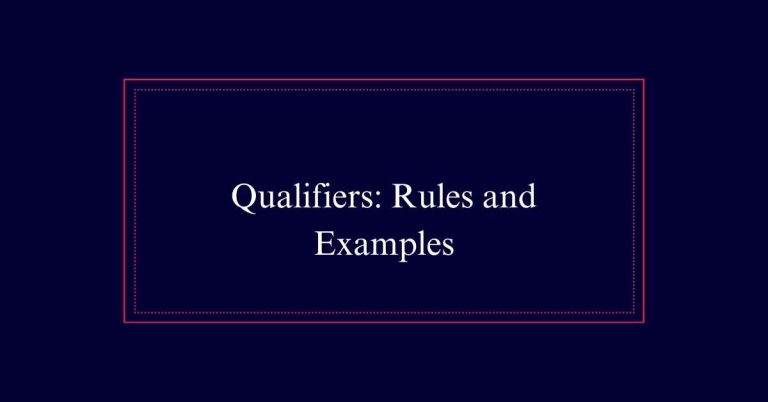What are defining clauses?
Defining clauses are essential parts of sentences, providing specific information that precisely identifies the noun they modify. These clauses contain a subject, verb, and a relative pronoun (like ‘who,’ ‘which,’ or ‘that’). Unlike non-defining clauses, they are not set off by commas. Defining clauses enhance clarity and prevent ambiguity by adding necessary details. For example, in “The woman who won the lottery,” the clause “who won the lottery” specifies which woman is being referred to.
Characteristics of Defining Clauses
Defining clauses contain a subject, a verb, and a relative pronoun, making them essential for providing specific details about nouns. They are descriptive in nature and often referred to as adjectival or adjective clauses.
These clauses are distinguished by their specific elements, which are vital for identifying the noun they modify. Defining clauses serve to provide necessary information, ensuring clarity and precision in sentences. They fall under the category of relative clauses and help specify which noun is being referred to without ambiguity.
Unlike non-defining clauses, they should not be separated by commas. Examples include sentences like ‘The book that you lent me is fascinating,’ where the clause clarifies which specific book is being discussed.
Key Elements in Defining Clauses
Key elements in defining clauses include a subject, a verb, and a relative pronoun. These components work together to provide essential information about the noun they modify.
The subject and verb form the core of the clause, while the relative pronoun connects it to the main sentence, clarifying which noun is being described.
Key elements are:
- Subject: Identifies who or what the clause is about.
- Verb: Shows the action or state of the subject.
- Relative pronoun: Links the clause to the noun it modifies, such as ‘who,’ ‘which,’ ‘that.’
- Essential information: Provides necessary details to define the noun.
Importance of Defining Clauses
Why are defining clauses essential in written communication?
Defining clauses provide necessary information that specifies and identifies the nouns they modify. This guarantees the reader understands exactly which person or thing is being referred to.
For example, in the sentence ‘The woman who won last year’s jackpot bought a lottery ticket,’ the defining clause ‘who won last year’s jackpot’ tells us precisely which woman is meant. Without such clauses, sentences can become vague and ambiguous, leading to confusion.
Defining clauses also enhance clarity and precision, making the intended message clear. They are indispensable tools for writers aiming to convey detailed and accurate information, thereby improving the overall quality of written content.
Differentiating Defining Clauses
To differentiate defining clauses, one must understand their role in specifying and clarifying the nouns they modify. These clauses are essential in providing necessary information about the noun, thereby ensuring the sentence conveys the intended meaning.
Defining clauses are not set off by commas, emphasizing their integral role in the sentence.
Key features include:
- Essential Information: They provide vital details that define the noun.
- No Commas: They are not separated by punctuation.
- Relative Pronouns: Often start with ‘who,’ ‘which,’ or ‘that.’
- Clarification: They help specify which person or thing is being referred to.
Examples of Defining Clauses
Understanding the importance of defining clauses, let’s explore some examples to see how they function in sentences. Consider the sentence, ‘The woman who won last year’s jackpot bought a lottery ticket.’ Here, the defining clause ‘who won last year’s jackpot’ specifies which woman is being referred to.

Another example is, ‘The cantaloupe that I grew in my garden is ripe.’ The clause ‘that I grew in my garden’ identifies the particular cantaloupe.
These defining clauses are essential because they provide necessary information that helps pinpoint the specific noun. Without these clauses, the sentences would be ambiguous.
Therefore, defining clauses are essential for adding clarity and precision to our writing, ensuring the intended meaning is accurately conveyed.
Common Mistakes to Avoid
Many writers trip up by incorrectly using punctuation with defining clauses. A defining clause provides essential information and should not be separated by commas. Misuse of commas can alter the meaning of a sentence and confuse readers.
Common mistakes include:
- Using Commas: Inserting commas before and after defining clauses.
- Overlooking Necessity: Omitting defining clauses that are vital for clarity.
- Misidentifying Clauses: Confusing defining clauses with non-defining ones.
- Ignoring Sentence Clarity: Failing to see how defining clauses enhance understanding.
Correct usage of defining clauses ensures that sentences convey precise information. Ensuring no commas are used incorrectly helps maintain the intended meaning and avoids ambiguity. Proper identification and use of these clauses are essential for clear and effective writing.
Essential Information Provided
Correct use of defining clauses is pivotal because they provide the necessary information to identify the nouns they modify. These clauses offer specific details that are essential to understanding which person, place, or thing is being referred to.
For example, in the sentence ‘The book that you lent me was fascinating,’ the defining clause ‘that you lent me’ specifies which book is meant. Without these clauses, sentences can become vague and ambiguous. They guarantee that the reader knows exactly which noun is being described, making the communication precise and clear.
Role in Sentence Clarity
Defining clauses play an important role in ensuring sentence clarity by providing essential details about the nouns they modify. By specifying and identifying which noun is being referred to, these clauses eliminate ambiguity and make sentences more precise.
They help readers understand the exact context and meaning of the sentence.
Key benefits of defining clauses include:
- Precision: They pinpoint the particular noun, leaving no room for confusion.
- Context: They add necessary context, making the sentence more informative.
- Clarity: They ensure the sentence is clear and easy to understand.
- Relevance: They deliver relevant information essential to the sentence’s meaning.
Punctuation Rules
Punctuation rules for defining clauses are straightforward yet essential for maintaining sentence clarity. Defining clauses provide necessary information about the noun they modify and should not be separated by commas or other punctuation marks. These clauses are vital for specifying which noun is being discussed, ensuring the sentence conveys the intended meaning accurately. Incorrect punctuation can lead to confusion or ambiguity, undermining the sentence’s clarity.
Here is a summary of the punctuation rules:
| Punctuation Rule | Example | Explanation |
|---|---|---|
| No commas | The book that you lent me is excellent. | Essential information |
| No parentheses | The car which I borrowed broke down. | Integral to understanding |
| No dashes | The house where I grew up was sold. | Necessary for clarity |
| No semi-colons | The teacher who helped us retired. | Defines the specific subject or object |
Enhancing Written Content
Mastering the use of defining clauses greatly enhances the clarity and precision of written content. These clauses provide essential information that helps specify and identify nouns, making sentences more meaningful and less ambiguous.
By incorporating defining clauses, writers can enrich their content in several ways:
- Specificity: Offers precise details about the subject or object.
- Clarity: Eliminates confusion by clearly defining which noun is being referred to.
- Conciseness: Provides necessary information without adding extra sentences.
- Engagement: Makes the content more informative and engaging for readers.
Frequently Asked Questions
Can Defining Clauses Be Used in Informal Writing?
Defining clauses can be used in informal writing. They add necessary details and clarity to sentences. Whether in formal or informal contexts, they guarantee the message is precise and understandable by identifying specific nouns.
How Do Defining Clauses Differ From Non-Defining Clauses?
Defining clauses provide essential information to identify the noun they modify and do not use commas. Non-defining clauses add extra information, are not vital for meaning, and are set off by commas.
Are There Any Exceptions to the Rules of Defining Clauses?
Yes, there are exceptions to the rules of defining clauses. For instance, in informal writing, commas may sometimes be used. However, in formal writing, adhering to the rule of no punctuation is essential.
